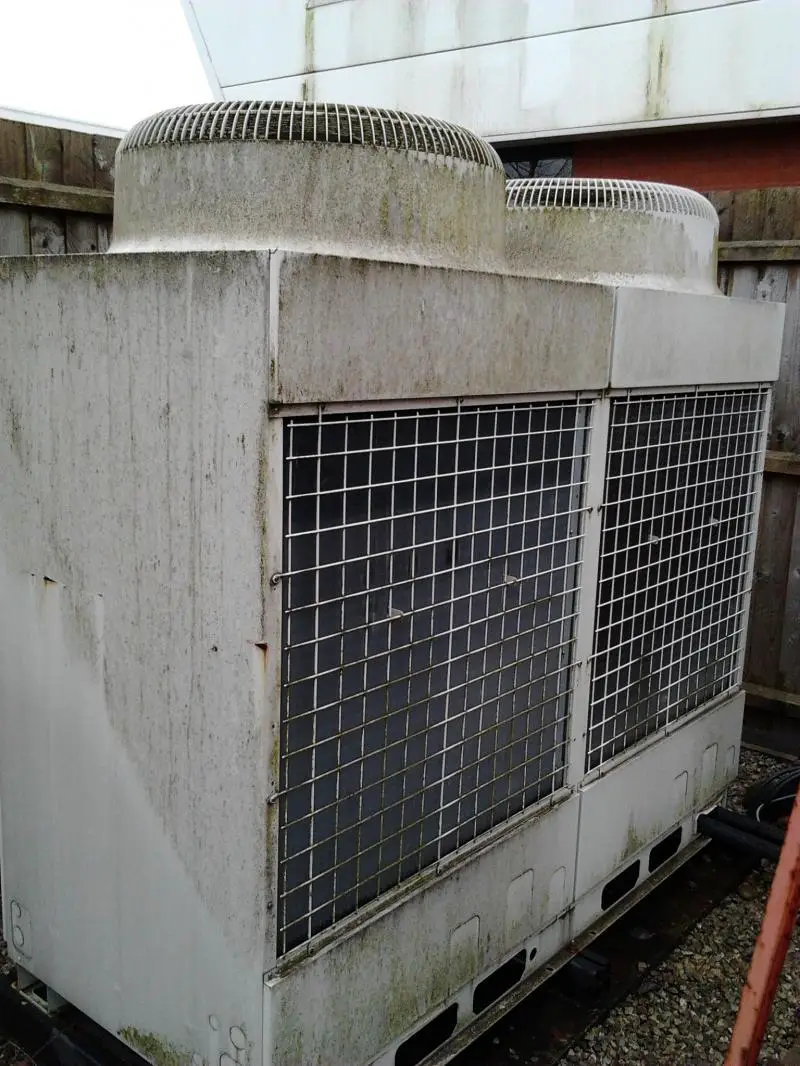I am responsible for maintenance of an office building which is approximately the size of a large 5 bed detached house. It is heated with a central 'air source' heat pump. (Mitsubishi City Multi) I can advise as follows:
Heat pumps do not reach the same temperature as a boiler, so they only work in really well insulated properties. If you connected a HP to your existing radiator system they would become tepid only. That is why heat pumps are used with either underfloor heating which gives a lower surface temperature but over a much larger surface area, or to a ducted blown air system. The advantage with the latter as you say, is cooling in the summer and this is what they use in the USA.
The system has two parts, one indoor and one outdoor. In simple terms one part gets warm the other cool, so during the summer the outdoor unit gets warm and the indoor unit cold. In the winter this is reversed so that the indoor unit is warm and the outdoor unit cold, so cold in fact, that when the outdoor air temperature falls below 4 degrees C ours freezes up. This needs defrosting. So for up to 20 minutes in every hour, all of the heat it generates is used to thaw the outdoor unit. None is available to heat the property.
Also the colder it gets outside the less heat it generates, when it's below freezing ours has to be left on 24 hours a day 7 days a week to keep 21 degrees indoors and even then it can still drop to 19 during the night, so much of any efficiency saving is lost. I should add that the property is 7 years old and won an award for its high levels of insulation.
A ground source heat pump overcomes this in some measure as the ground is usually a few degrees warmer than the air, but the installation ground works are very disruptive, expensive and can require a lot of land.
I believe that the installation cost of our air source system, which includes a ventilation system with heat exchanger was just under £30,000 a gound source system would be considerably more
I can't comment on the running costs of the system, because the same electric meters also supply power to a small industrial unit with a standard electric heating system.
A very useful post truly deserving my thanks, I had not been aware that ice could form on the outside , requiring prolonged defrosting.
As for the system efficiency, it would suffer as the outside temperature falls, since a compressor pump has nothing to do with the temperatures and its job is to pump the gas and compress it, the gas is in a closed loop, so the pump draws a steady amount of electrical power, therefore the amount of heat extracted then depends on the temperature of the outside air and the extraction rate of the system, the extraction rate varies as the temperature falls the extraction rate also falls, whilst the pump continues to use the same amount of electrical energy.
So I can see there can be many many pitfalls already.
Looking at various neighbour's bills, most are about the same between £300 to £375, so may be I am under some disillusion that mine are very high. I will be checking a few more neighbours bills to find out what is the average street consumption, our houses are very large, 3 bedrooms with 3 receptions and a big cellar, high ceilings, bay windows and rear extension, built during 1930's and so do not have cavity walls.



